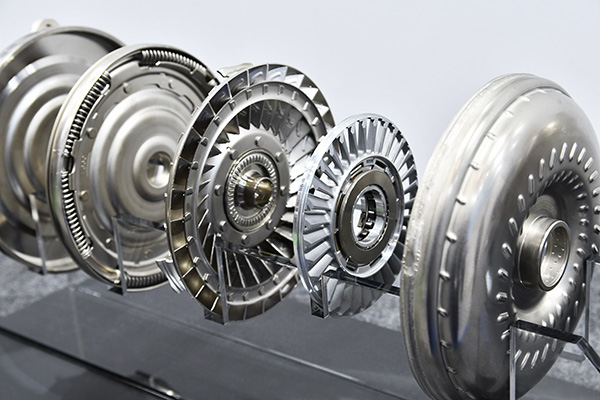
You may have heard the term "torque converter" thrown around in automotive circles, but what exactly is it, and how does it contribute to your vehicle's performance?
The Torque Converter
At its core, a torque converter is a hydraulic coupling device found in automatic transmission systems. Its primary function is to transfer power from the engine to the transmission, allowing for smooth and efficient acceleration while driving.
A torque converter consists of three main components: the impeller, turbine, and stator. These elements work together to transmit power through the fluid coupling process, allowing for variable torque multiplication depending on driving conditions.
How It Works
Unlike manual transmissions, which rely on a clutch to engage and disengage the engine from the transmission, automatic transmissions utilize a torque converter to achieve the same effect seamlessly. The fluid coupling process within the torque converter enables smooth power transfer without the need for manual intervention.
Fluid Dynamics in Action
When the engine rotates the impeller, it creates a flow of transmission fluid within the torque converter. This fluid is then directed towards the turbine, causing it to rotate and transmit power to the transmission. The stator plays a crucial role in redirecting fluid flow for optimal efficiency during different driving conditions.
Variable Torque Multiplication
One key advantage of torque converters is their ability to provide variable torque multiplication, depending on the vehicle's speed and load. This ensures optimal performance across a wide range of driving scenarios, from low-speed acceleration to highway cruising.
In some modern vehicles, torque converters feature a lock-up clutch mechanism that engages at higher speeds to eliminate slippage and improve fuel efficiency. This direct mechanical connection between the engine and transmission enhances overall drivetrain efficiency and reduces power loss.
Torque Converter and Transmission Maintenance
Maintaining your torque converter and transmission is essential for ensuring the longevity and performance of your vehicle. Regular fluid checks and changes, along with inspections for leaks and wear, can help prevent costly repairs.
Scheduling routine maintenance appointments with Premier Automotive Service will allow for early detection of any potential issues, allowing you to address them before they escalate.
By following these simple tips, you can keep your torque converter and transmission in top condition for miles to come.
Trust Premier Automotive Service for expert torque converter and transmission maintenance. Schedule your service today!